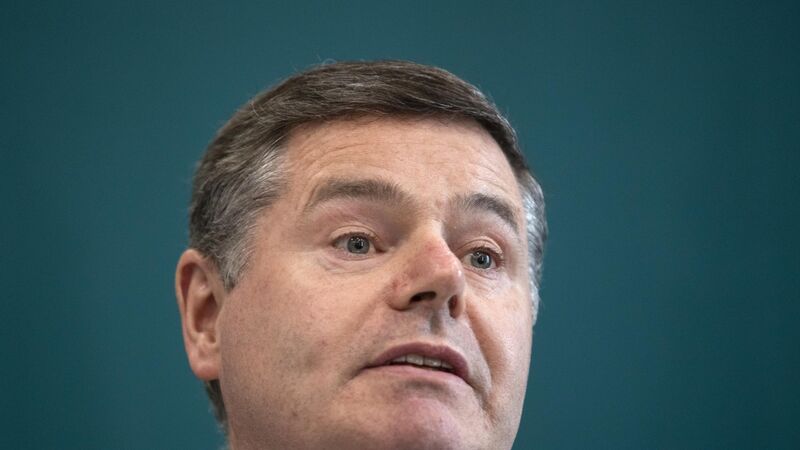Irish Government borrowing costs fall sharply

Finance Minister Paschal Donohoe.
The yield, or interest rate, on the Irish 10-year bond traded at 1.83%, down in the session, and sharply lower compared with the yield of 2.4% less than a month ago.
Try from €1.50 / week
SUBSCRIBEThe implied cost for the Government to borrow from international debt markets fell significantly yesterday, as traders reined in expectations for European Central Bank rate increases over the coming months.
The yield, or interest rate, on the Irish 10-year bond traded at 1.83%, down in the session, and sharply lower compared with the yield of 2.4% less than a month ago.
Already a subscriber? Sign in
You have reached your article limit.
Annual €130 €80
Best value
Monthly €12€6 / month
Introductory offers for new customers. Annual billed once for first year. Renews at €130. Monthly initial discount (first 3 months) billed monthly, then €12 a month. Ts&Cs apply.
CONNECT WITH US TODAY
Be the first to know the latest news and updates
Newsletter
News and analysis on business, money and jobs from Munster and beyond by our expert team of business writers.
Newsletter
News and analysis on business, money and jobs from Munster and beyond by our expert team of business writers.
Newsletter
Keep up with stories of the day with our lunchtime news wrap and important breaking news alerts.
Newsletter
Sign up to the best reads of the week from irishexaminer.com selected just for you.
Friday, February 13, 2026 - 5:00 PM
Friday, February 13, 2026 - 5:00 PM
Friday, February 13, 2026 - 4:00 PM
© Examiner Echo Group Limited